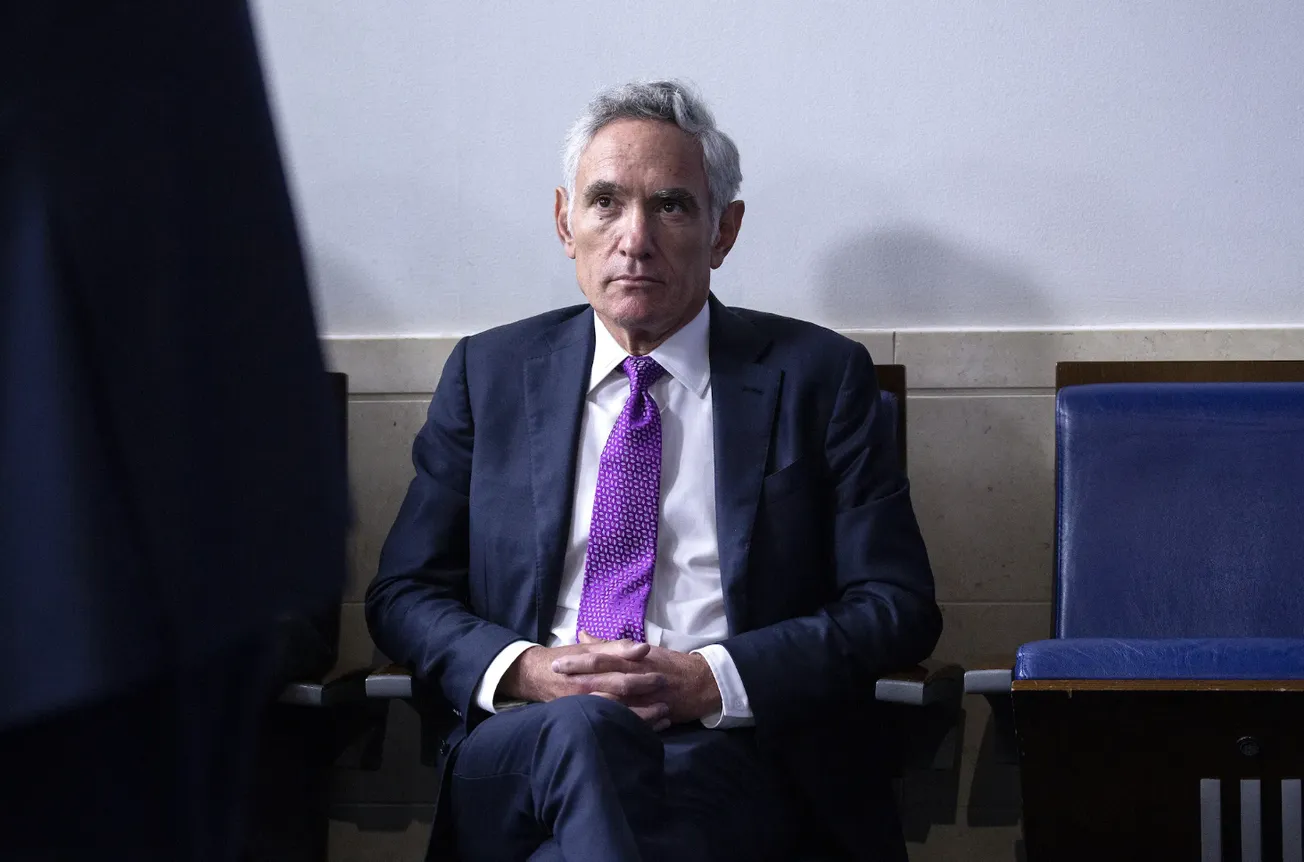Table of Contents
Editor's Note: Today, Stanford's Faculty Senate will vote on whether to rescind the censure of Dr. Scott Atlas. We are honored to publish this piece from Professor Ivan Marinovic urging his colleagues to support academic freedom.
In November 2020, the Stanford Senate convened to deliberate disciplinary actions against Scott Atlas. His offense? Expressing views on COVID policy that challenged those of other faculty. Atlas was neither informed of the meeting nor given an opportunity to attend and respond to the accusations. In essence, he was denied the right to defend himself and was judged for his speech in absentia.
Several months prior, in September 2020, ninety-eight professors from the Stanford School of Medicine had circulated a letter, addressed to the entire Stanford academic council, using the university's academic secretary, condemning Atlas in harsh terms: "To prevent harm to the public’s health, we also have both a moral and an ethical responsibility to call attention to the falsehoods and misrepresentations of science recently fostered by Dr. Scott Atlas…. Many of his opinions and statements run counter to established science and, by doing so, undermine public-health authorities and the credible science that guides effective public health policy… Failure to follow the science -- or deliberately misrepresenting the science – will lead to immense avoidable harm."
The letter offered no mention, citation, or documentation about what Atlas had said, where he had allegedly published falsehoods, why his statements were incorrect, or how they posed a danger to the public. Instead, it merely conveyed that many Stanford professors believed he was spreading misinformation and misrepresenting science.
This letter set the stage for a subsequent Senate meeting, which led to the following institutional censure:
"As elected representatives of the Stanford faculty, we strongly condemn his behavior. It violates the core values of our faculty and the expectations under the Stanford Code of Conduct, which states that we all ‘are responsible for sustaining the high ethical standards of this institution.’ The resolution stated that Atlas’ behavior is “anathema to our community, our values, and our belief that we should use knowledge for good.”
(Despite the severity of the charges, none of Atlas’ accusers have accepted an invitation to explain their position or debate Atlas —I invited many of them to do so at the Classical Liberalism series.)
What exactly did Atlas say to provoke such intense condemnation from his peers? During the pandemic, he questioned the effectiveness of masks, school closures, and lockdowns. In response to the attacks, Atlas wrote: "My views in favor of the careful protection of our nation’s most vulnerable while safely re-opening society are far from contrary to science….I have also repeatedly recommended mitigation measures, including social distancing and mask-wearing when one cannot distance."
The censure of Atlas marks a low point in Stanford’s history. Never before had Stanford censured a professor without affording him the fundamental right to defend himself. And while the resolution condemned Atlas’s conduct with moral indignation, the Senate was blind to its own moral failure in passing this resolution.
The censure also sent a chilling message to the Stanford community: Any faculty member who challenges orthodoxy risks public condemnation and institutional ostracism. The lesson is clear: those who dissent will face not just academic and online mobs targeting their reputations and careers, but also formal denunciation from the university itself.
By censuring Atlas, the Senate revealed the fragility of Stanford’s commitment to free speech and academic freedom.
Recently, the Senate had an opportunity to correct this miscarriage. In a commendable effort, Jonathan Berk, John Etchemendy, and Juan Santiago sponsored a petition to rescind the censure. Under Stanford’s rules, the Senate was required to address the petition, as it had garnered signatures from over fifty faculty members. The decision should have been straightforward. The censure had set a bad precedent for Stanford, which prides itself on valuing and respecting open inquiry. The censure was a clear injustice against a community member.
Moreover, over time the evidence had revealed that Atlas' opinions were at least debatable, if not correct. As Etchemendy pointed out in his speech at the Senate: “Ironically, there is now growing scientific consensus that many of the positions about which Atlas was condemned may in fact have been correct.” Of course, Atlas’ right to free inquiry and expression do not rest on having been right, but Stanford looks even more foolish given this outcome.
But the Senate's vote on April 11th, 2024, was disappointing. The Senate did not rescind the censure but did not dare reaffirm it either. Instead, it postponed the vote. Displaying a grand bureaucratic spirit, the Senate decided to appoint a policy board to study policy and procedures related to Senate censures and review Atlas's 2020 censure. The board comprised many faculty who had voted on the original censure motion, but neither Berk, Etchemendy, nor Santiago were asked to serve.
The Senate treated the matter as if it were merely a procedural issue—one to be resolved by defining rules, such as the quorum required to punish a professor or the topics and expertise that might protect a faculty member from institutional condemnation.
What the Senate failed to grasp is that this was not about rules but a fundamental academic principle. No matter how many faculty members—or even Nobel laureates—disagree with a colleague’s extramural speech or policy recommendations, censuring him without even a semblance of due process is never justifiable.
The proper response to bad speech is more speech—not the suppression of ideas—especially at an institution dedicated to learning and teaching. At the risk of repeating a cliche, a university must not only tolerate but actively encourage dissent. At a minimum, it should refrain from endorsing unsubstantiated personal attacks or stifling opposing viewpoints. Scholars already incur significant personal costs for challenging dominant viewpoints. While dissent carries personal risks, it also offers immense societal benefits. At the very least, it forces us to think more critically, deepens our understanding, and exposes the strengths and flaws in our ideas, opinions, and prejudices.
The Senate should rescind Atlas's censure, not only because it is the morally right thing to do but also because the censure established a troubling precedent for Stanford, and remains a stain on its reputation. I hope the Senate will demonstrate the integrity to correct this injustice and embrace not a policy of censure, but the broadest possible commitment to academic freedom. Such a commitment is essential if Stanford is to remain a leader in academic excellence.





